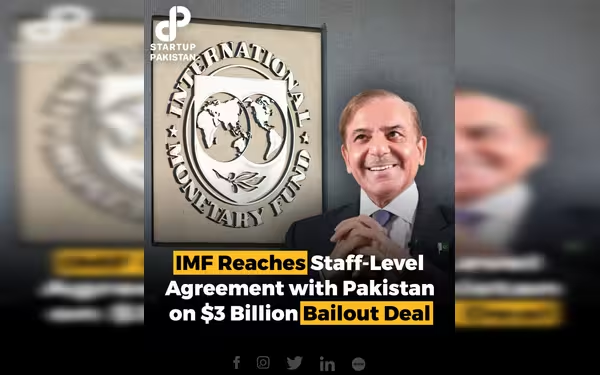Tuesday, July 2, 2024 03:59 PM
IMF and Pakistan Reach Agreement on $3 Billion SBA
- SBP repays $1 billion for Pakistan's International Bond
- Pakistan's foreign exchange reserves stabilize, reaching $13.38 billion
- IMF approves final tranche of $1.1 billion for Pakistan
 Image Credits: X.com
Image Credits: X.comThe State Bank of Pakistan repays $1 billion for international bond, stabilizes foreign exchange reserves, and reaches IMF agreement for $3 billion Stand-By Arrangement.
The State Bank of Pakistan (SBP) announced the successful repayment of $1 billion for Pakistan's International Bond on April 12, 2024. This payment, covering both principal and interest, was made to the agent bank for distribution to bondholders. Following this repayment, Pakistan's outstanding international bonds/Sukuks amount to $6.8 billion, representing 6.8% of the public external debt. The next maturity is set for $500 million in September 2025, as stated by Shahid Ali Habib, CEO of Arif Habib Limited (AHL).
Recent data shows a stabilization in Pakistan's foreign exchange reserves, with SBP's reserves increasing by $19 million weekly, reaching $8.04 billion by March 29. The country's total liquid foreign reserves stand at $13.38 billion, with commercial banks holding $5.34 billion in net foreign reserves. Despite the upcoming decrease in SBP-held reserves to around $7 billion due to the bond repayment, Pakistan anticipates an inflow from the International Monetary Fund (IMF).
In a significant development, Pakistani authorities have reached a staff-level agreement on the final review of the $3 billion Stand-By Arrangement (SBA) with the IMF. Approval by the IMF Executive Board, expected in late April, will unlock funds of approximately $1.1 billion (SDR 828 million) as the final tranche of the SBA. IMF Chief Kristalina Georgieva highlighted Pakistan's improved economic performance and the commitment to address key issues such as expanding the tax base, enhancing public spending transparency, and promoting a more equitable economic contribution from society's wealthier segments.













